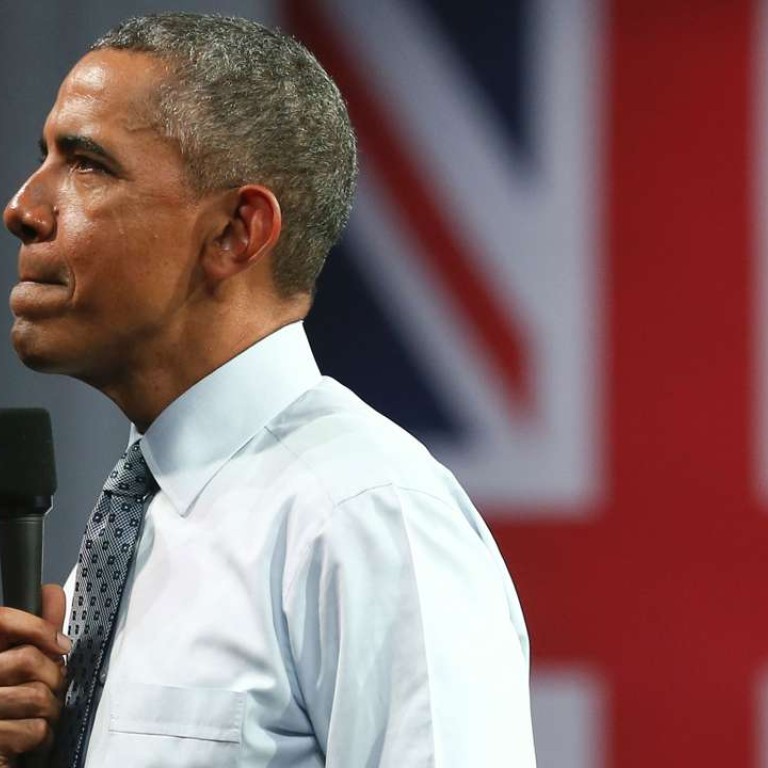
‘Brexit’ is the last thing Europe needs right now
The UK’s potential exit from the EU is needed like a hole in the head.
The market has spoken.
In last month’s survey of global fund managers published by Bank of America Merrill Lynch (BAML), the threat of a British exit from the European Union —Brexit — did not even figure in the top four so-called “tail risk” events: an external shock that causes a sharp market sell-off and potentially threatens the financial system.
In this month’s poll, however, which was published on April 12, a Brexit was the second most important tail risk after the failure of central banks’ ultra-loose monetary policies.
Over the last several months - and especially since Boris Johnson, the mayor of London and a prominent member of the UK’s ruling Conservative Party, announced in late February that he would campaign for a Brexit in a high-stakes referendum on June 23 - international investors have become a lot more concerned about the economic and political fallout from a withdrawal of the EU’s second-largest economy from the 28-member bloc.
In a report published in early March, BlackRock, the world’s largest asset manager, said that its “bottom line is that a Brexit offers a lot of risk with little obvious reward”, with “sterling most vulnerable to Brexit fears” and the London property market particularly at risk, given that a sizeable portion of demand for office space is tied to Britain’s access to the EU’s single market.
Even US president Barrack Obama weighed into the debate last week, warning in London that the UK would lose influence in Europe if it left the EU and that it would be forced to go “to the back of the queue” in its efforts to sign a new trade deal with Washington.
The pound is the developed world’s worst performing currency this year, and is still down 1.5% against the dollar despite a strong rally this month stemming from opinion poll data showing rising support for the pro-EU forces — known as the “Bremain” camp — since the referendum campaign got under way on April 15.
While the UK enjoyed robust demand for an auction of 50-year bonds on Tuesday, sterling is likely to remain sensitive to polling data in the run-up to the plebiscite.
Less attention, however, is being paid to the consequences of a Brexit for the rest of the EU - in particular the ill-managed eurozone - at a time when Europe is already facing the most acute challenge to the process of integration stemming from the ever-deepening refugee crisis.
Make no mistake, Europe needs a Brexit like it needs a hole in the head.
The mere threat of a Greek exit from the eurozone (“Grexit”) at the end of 2011 was enough to plunge Europe’s single currency area into a severe and protracted financial, economic and political crisis which exposed the weak governance of the bloc.
While the UK is not part of the euro-zone, a Brexit would be incomparably more detrimental to the cause of European integration than the withdrawal of Greece, a country whose economy accounts for less than 2% of the EU’s total economy.
Not only does the UK account for nearly one sixth of EU output, its mostly London-based financial sector accounts for 25% of all EU financial services income and 40% of the bloc’s financial services exports, according to the Bank of England (BoE).
Yet the real damage would lie in the political sphere at a time when anti-EU sentiment is rife in a number of member states, both in western Europe and, increasingly in eastern Europe, largely because of the fierce backlash against German chancellor Angela Merkel’s open-door policy for migrants.
So far, the euro has proved extremely resilient to the Brexit risk.
Indeed Europe’s single currency has risen nearly 5 per cent against the dollar since the end of February, admittedly partly because of the USdollar’s recent weakness.
But European assets — in particular the bonds of much less creditworthy southern European countries — are at risk. According to Pictet Asset Management, “it could be that euro-denominated securities, not sterling-denominated ones, turn out to be the weakest link” in the event of a Brexit.
Fortunately, it is still unlikely that British voters will choose to withdraw from the EU.
What could happen, however, is that English voters (as opposed to their more europhile Scottish and Welsh counterparts) support a Brexit by a narrow margin, undermining premier David Cameron’s government and creating further uncertainty about the UK’s position in Europe.
European assets will be the securities to watch in the days and weeks after British voters head to the polls.
Nicholas Spiro is a partner at Lauressa Advisory

